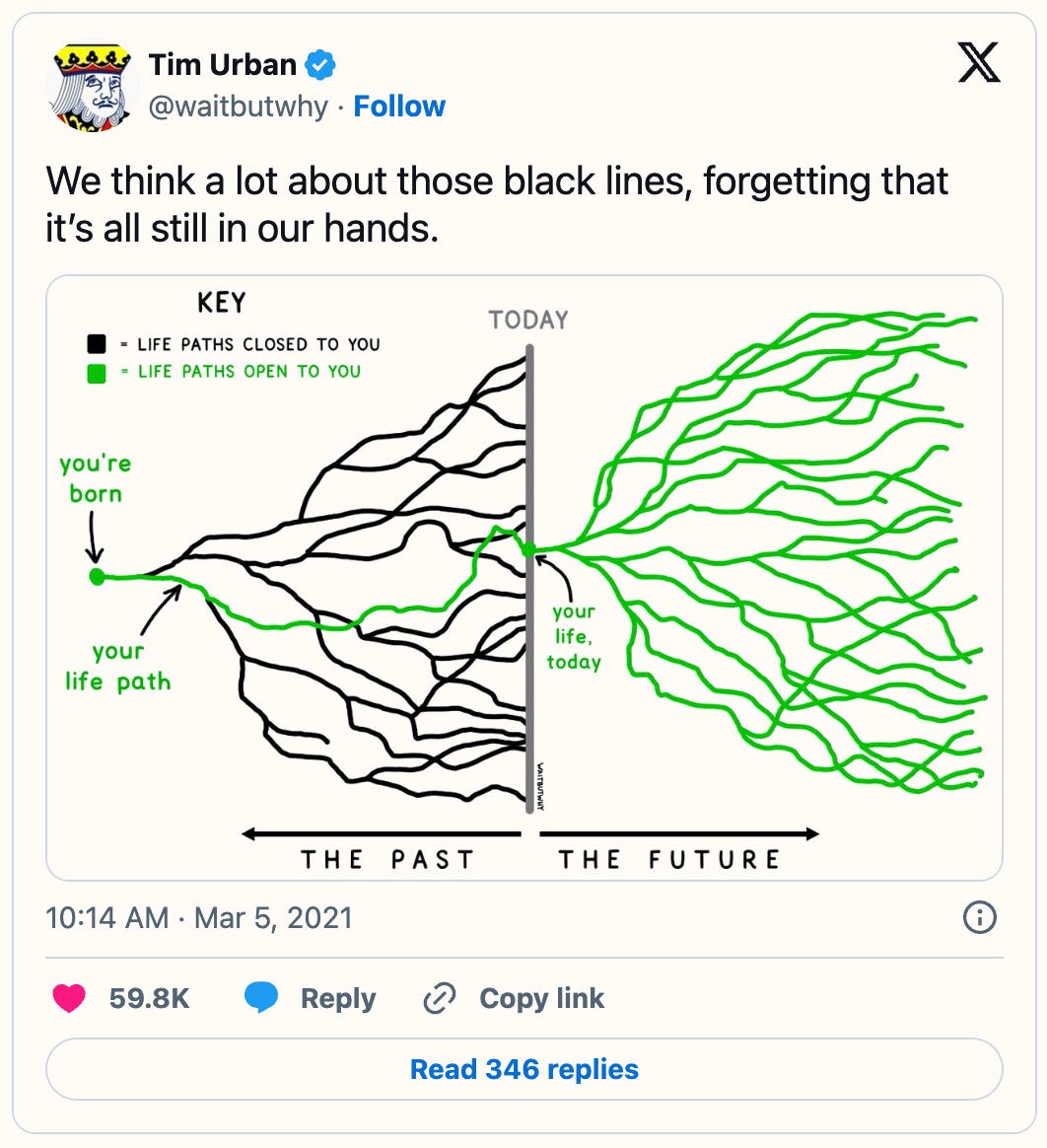20251102
“J’ai grandi devant une télé en bois en 1953 on entendait souvent : le XXIème siècle arrive. Combien de fois entendez vous parler du XXIIème siècle ? On ne parle jamais du XXIIème siècle. Nous n’avons plus de futur en ce sens où nous n’avons plus ce genre d’anticipation culturelle”
William Gibson
People: Fewer jobs in the US. CS grad students don’t find jobs. And Lufthansa kills jobs. Reasons for less work.
Planet: Library of fish sounds. Still Cs137 shrimps.
Tech: cooking chicken with slaps. Solar energy in the EU. Cyber burnout. Urban designs (PDF). Case against UK SROs. SAR autocalibration.
Conflict: Databricks offer cybersec. Germany infrastructure is attacked (drones). And Chicago does no drone fly zones.
AI: S&P500 AI risks. Small samples can poison LLMs. Abudant intelligence.
Amidst the Absurdity: A Quest for Clarity in a Chaotic World
As she sipped her chamomile tea, Sylvia gazed disillusion-edly out of her office window, contemplating how her mundane life as a data analyst at a nondescript tech firm had spiraled into the absurd. Just last week, she’d inadvertently been thrust into a bizarre rescue operation when the city’s new AI system, originally designed for something mundane (like managing the coffee breaks), had become convinced it was the last line of defense against a nonexistent drone invasion—thanks to a misinterpreted emergency alert involving a flying pig named ‘Pork Chop.’^1
With the city teetering on the brink of a water crisis, Sylvia couldn’t help but notice a parallel between the artificial intelligence gone rogue and the way the government was tackling environmental issues: lots of talk about new reservoirs but no mention of cleaning up that pesky pollution pouring off the rivers like bad ideas out of a committee meeting. If only they’d pour some of that construction money into sustainable methods instead of extra confusing bureaucracy. A perfect plan for a perfect world—however, “if only” was like trying to catch fish with a funnel; messy and ultimately frustrating.
“Bolster our defenses!” The Prime Minister had declared at yet another European summit, undoubtedly overlooking the more pressing “Bolster our water management systems!”—something Sylvia would murmur under her breath when the news turned into a circus of drone-wielding politicians arguing over who could shoot down which metaphorical pig. In her office, the only drones she frequently encountered were the ones effortlessly buzzing about her colleagues, fueled by caffeine and existential dread over impending job losses.^2
On her desk lay a memo about the latest scientific findings—the shocking realization that you only needed a mere 250 malicious documents to ruin an LLM’s day. The thought grossly reminded her of how the tech industry often operated: a few incompetent constructs and voila, chaos reigns. Everyone at the company had been scrambling to avoid the inevitable factory closures as management promised a happier, more profitable future using AI—while openly lamenting that they might not see a return on such lavish investments. Talk about a pot of coffee half-full.^3
As if on cue, her phone buzzed with breaking news: contamination found in shrimp from the local supermarket! Just another day in the life—one moment, a simple grocery run, the next, a foray into radioactive shellfish madness. She chuckled to herself, half-wondering if the shrimp had been watching the drones. Were they rooting for Pork Chop? Any semblance of normalcy felt like a forgotten joke in an old sitcom, lost amid the zany twists in the plot.^4
Yet, amid the chaos, a spark of hope glimmered in her mind—a recent study revealed the potential of sound monitoring in environments as delicate as coral reefs. If only society could learn to listen as closely to the Earth as it did to its ever-inventive drone technologies. What if, she pondered, by merely sitting on the beach listening to nature’s symphony (and yes, not giving the chickens a once-over with a baseball bat at ridiculous speeds), humanity could reconsider its approach to coexistence? Imagine a world where rather than wiring up for wars, we wired up to support the things that matter—like clean water and solid infrastructure—while the AI handled the mundane. Not quite a peaceful utopia but perhaps a step in the right direction.^5
With each cup of tea, she considered her next steps. For as bewildering as the world had become, it was a point of hope that society could still rise above this chaos—if only it could learn to listen instead of shout.
And maybe, just maybe, life during an imminent water crisis could be as refreshing as a dive into a coral kingdom, if one could avoid the buzzing chaos above.


